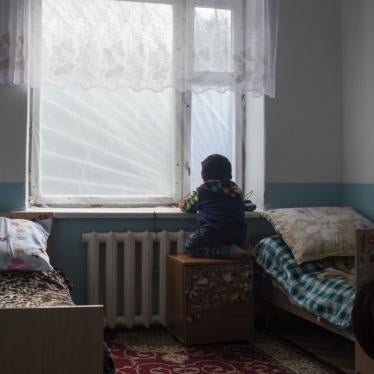1. We representatives of international human rights non-governmental organizations Disabled People's International, Down Syndrome International, European Disability Forum, European Network of (Ex-) Users and Survivors of Psychiatry, European Platform of Self-Advocates, Inclusion Europe, International Disability Alliance, Human Rights Watch, Mental Disability Advocacy Center, and Mental Health Europe urge the Venice Commission to amend Paragraph 2 of its "Interpretative Declaration to the Code of Good Practice in Electoral Matters on the Participation of People With Disabilities in Elections" (CDL-AD(2010)036) as follows:
Universal suffrage is a fundamental principle of the European Electoral Heritage. People with disabilities may not be discriminated against in this regard. Nevertheless, a court, in an individual decision, may consider that the lack of proper judgment of a [disabled] person may prevent him or her from exercising his or her right to vote or to stand for elections.
2. The right to vote and stand for election is a basic right that empowers adult human beings to take part in political and public life. People with intellectual disabilities, people with psycho-social (mental health) disabilities, and more exceptionally persons with other disabilities who have been deprived of legal capacity and placed under guardianship and people that have been put in institutions against their will are denied the right to vote in most Council of Europe Member States. This denial is both discriminatory and needless, and results from historic stigmatisation and segregation.
3. The right to vote and stand for election is not an absolute right: it is subject to age and citizenship requirements. It should never be subject to a "proper judgment" test (as per the current Venice Commission proposal), even if the restriction is imposed by an individual decision of a court of law. A "proper judgment" test constitutes indirect disability-based discrimination as it will only apply to people identified as having intellectual or psycho-social disabilities. As the Council of Europe's Commissioner for Human Rights pointed out in March 2011, "there is "no room for procedures in which judges or medical practitioners would assess the voting competence of a person and then give a green light-or not." (Thomas Hammarberg, "Human Rights Comment: Persons with disabilities must not be denied the right to vote", 22 March 2011))
4. The use of a "proper judgment" test contravenes the UN Convention on the Rights of Persons with Disabilities (CRPD), which was ratified by the European Union and most Council of Europe Member States. Moreover, even if the deprivation of the right to vote and stand for election is not solely based on disability (but on other requirements as well), it is still discriminatory and violates the CRPD.
5. The CRPD sets out the right to exercise legal capacity by stating that "persons with disabilities enjoy legal capacity on an equal basis with others in all aspects of life" (Article 12(2)). The CRPD also articulates the right to vote by requiring States to "ensure that persons with disabilities can effectively and fully participate in political and public life on an equal basis with others, directly or through freely chosen representatives, including the right and opportunity for persons with disabilities to vote and be elected" (Article 29(a)). The Convention allows for no exceptions. The CRPD's treaty body has recently said that disability-based discrimination should be prohibited in all laws, "particularly those governing elections" and that "urgent adoption of legislative measures to ensure that the right of persons with disabilities, including persons who are currently under guardianship or trusteeship, can exercise their right to vote and to participate in public life on an equal basis with others." (Concluding observations of the UN Committee on the Rights of Persons with Disabilities regarding Tunisia; Fifth session, 11- 15 April 2011, paragraphs 13 and 35.)








